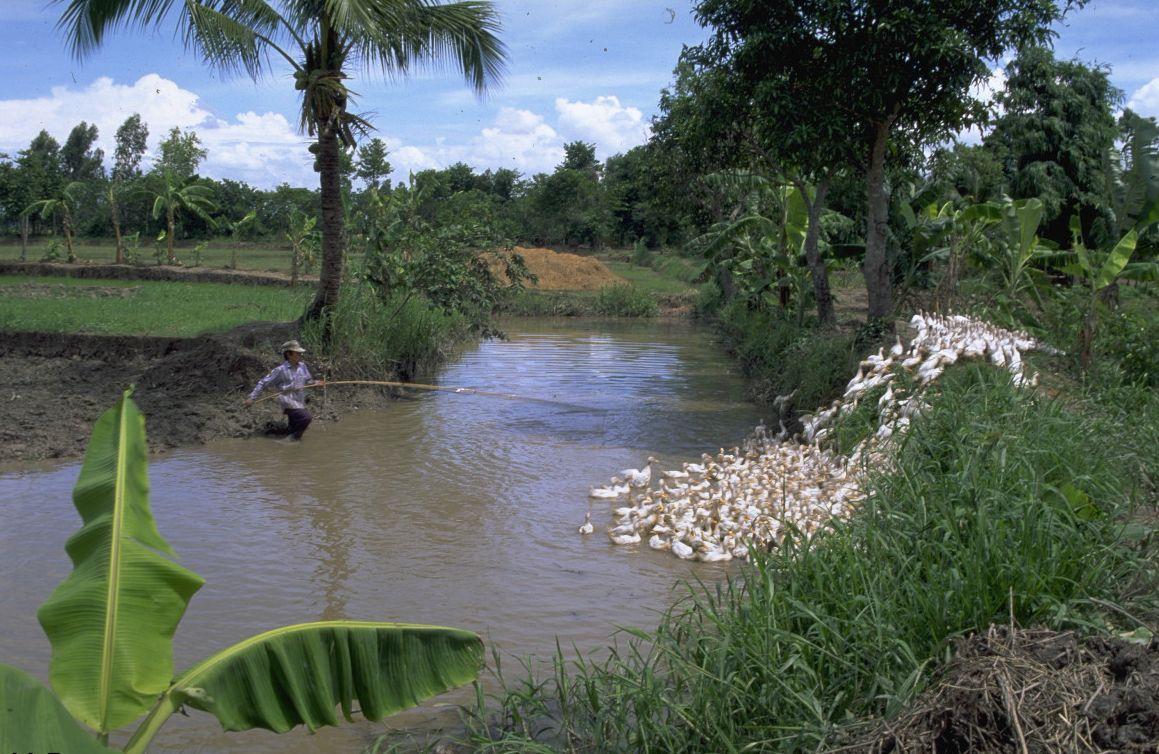
Coffee
Coffee is the world's leading agricultural resource, in value terms. Coffee growing generates income and jobs in producing countries, and is primarily practised on small family farms.

Vietnam, a keeper taking his ducks across the river. © A.-V. Bernus, CIRAD
Many of the Vietnamese government’s research priorities thus tally with CIRAD’s strategic priorities.
CIRAD has been convinced for several decades that the future of coffee growing lies in agroforestry and interdisciplinary approaches. The research undertaken seeks to improve varieties, cropping techniques and the assessment of how this agroecological cropping system performs. For four years, the European H2020 BREEDCAFS project worked on all these scientific fronts, particularly in Vietnam. Follow-on activities are being carried out as part of three projects: Sustainability of coffee and pepper in the Central Highlands of Vietnam (V-SCOPE), with Australian funding from ACIAR, a new Horizon-Europe project BOLERO (2022 to 2026) and the ECOFFEE project, whose second 3-year phase started at the end of 2022. The partnership with the private sector is important and is being strengthened following the BREEDCAFS project. The accreditation process for Arabica varieties bred by CIRAD has been initiated and is supported by the Ministry of Agriculture and Rural Development (MARD).
Vietnam, the world’s second largest producer, will host the International Conference on Coffee Science (ASIC) in September 2023.

Coffee is the world's leading agricultural resource, in value terms. Coffee growing generates income and jobs in producing countries, and is primarily practised on small family farms.
Several projects are focusing on antibiotic use in livestock farming and antibiotic resistance, taking an integrated One Health approach, particularly for assessing risks for human health.
These are the Vietnamese components of the international One Health Poultry Hub and ROADMAP projects:
ROADMAP to understand the practices of different stakeholders (farmers, veterinarians, drug manufacturers, health authorities, etc) in the use of antimicrobials in animal health.
and the new i-CRECT project in Vietnamese hospitals in Hanoi, and public and animal health research centres.
In the “One Health” field, CIRAD is also a member of the Vietnamese One Health Partnership, which brings together the ministries of agriculture, health and the environment and interacts with the Vietnam One Health University Network - VOHUN).

How can sustainable food supplies to urban areas be reconciled with local agricultural development?

A network aimed at producing more while preserving resources.

How can we manage the emerging health risks at the interface between animals, humans and their environments?
Other partnerships